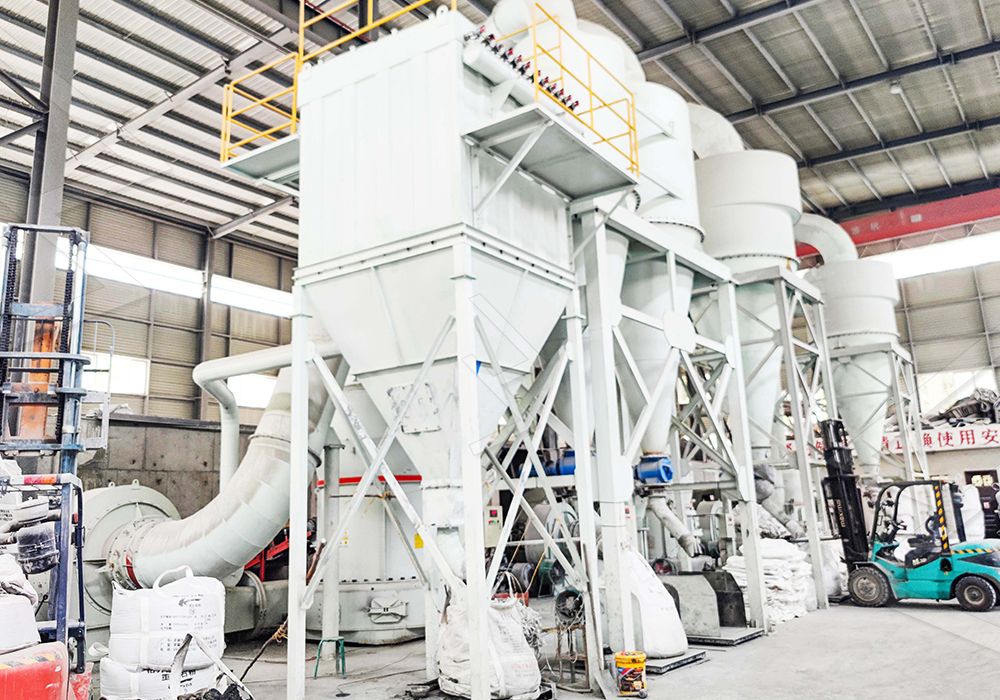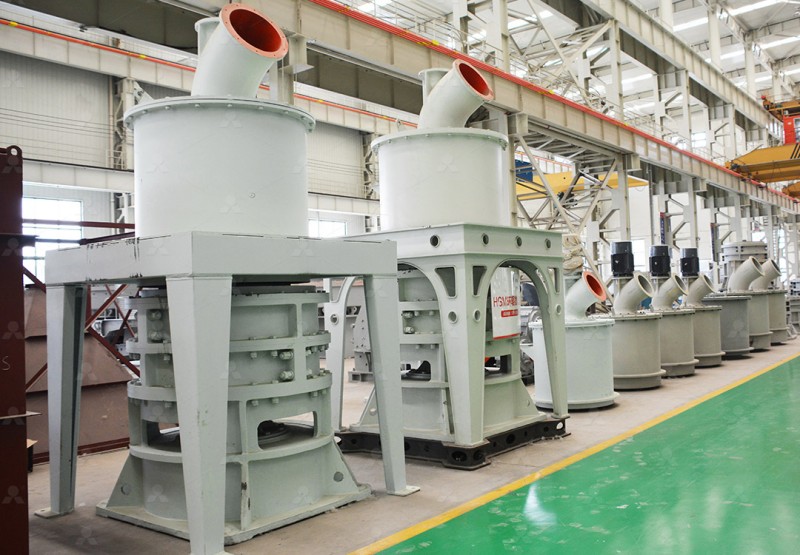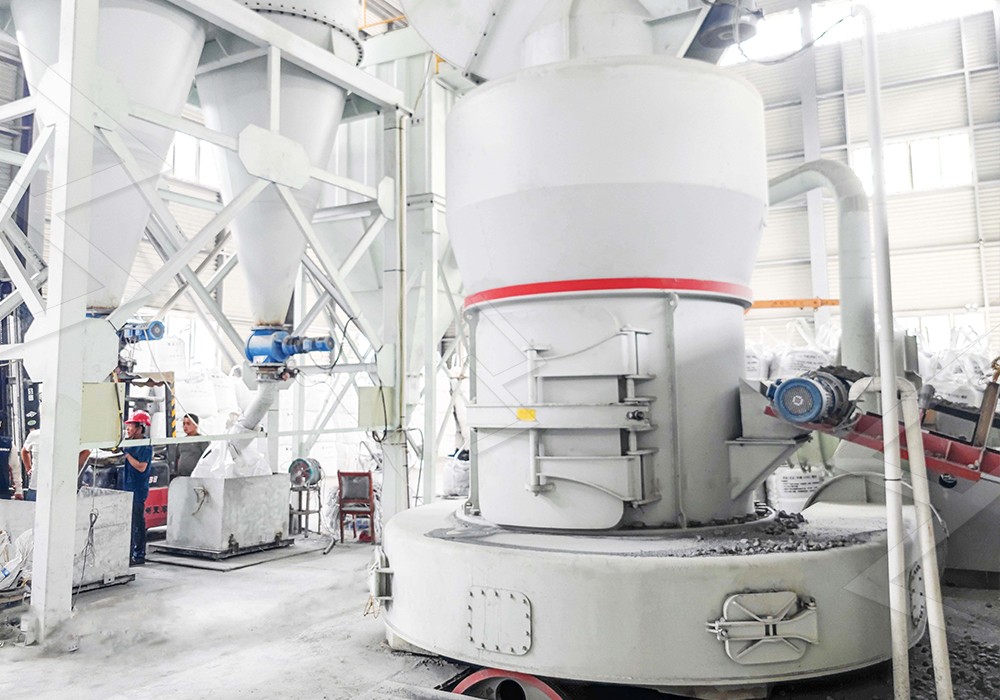Raymond Mill: The Ultimate Grinding Machine for Industrial Powder Processing
We provide a wide range of mills — including Raymond mill, trapezoidal mill, vertical mill, ultrafine mill, and ball mill, obtained ISO9001 international quality certification, EU CE certification, and Customs Union CU-TR certification. Suitable for processing minerals such as limestone, phosphate, quicklime, kaolin, talc, barite, bentonite, calcium carbonate, dolomite, coal, gypsum, clay, carbon black, slag, cement raw materials, cement clinker, and more.
The discharge range of these mills can be adjusted to meet specific processing needs, typically from 80-400 mesh, 600-3250 mesh, and can achieve the finest particle size of up to 6000 mesh(D50).
If you are looking for a reliable grinding solution to turn stone or minerals into fine powder, please feel free to contact our online customer service.
Raymond Mill: The Ultimate Grinding Machine for Industrial Powder Processing
In the realm of industrial powder processing, achieving consistent fineness and operational efficiency remains a paramount challenge. For decades, Raymond Mill has stood as a cornerstone technology, evolving to meet the rigorous demands of modern manufacturing. This workhorse of the grinding industry continues to deliver unparalleled performance across numerous sectors, from construction materials to chemical production.

The Engineering Excellence Behind Raymond Mill
What distinguishes Raymond Mill from conventional grinding equipment is its sophisticated mechanical design. The system employs a centralized electronic control system that manages everything from feeding to final product collection. Its grinding roller assembly oscillates outward to press against the grinding ring through centrifugal force, creating the precise mechanical pressure needed for consistent particle size reduction.
The airflow system represents another engineering marvel. Operating under closely sealed negative and positive pressure conditions, it efficiently transports materials through the grinding chamber to the separator. This closed-loop design not only enhances efficiency but significantly reduces environmental contamination.
Advanced Applications Across Industries
Raymond Mill’s versatility shines through its wide application spectrum. In cement production, it processes limestone and clay to exacting specifications. The metallurgical industry relies on it for preparing powdered ores, while chemical plants utilize it for creating uniform compound materials. Its ability to handle non-flammable and non-explosive materials with Mohs hardness below 9.3 and humidity under 10% makes it exceptionally adaptable.
Recent technological advancements have expanded its capabilities further. Modern Raymond Mills incorporate intelligent monitoring systems that track performance metrics in real-time, allowing operators to optimize production parameters dynamically. This digital transformation has elevated what was already a reliable workhorse into a smart manufacturing solution.

Beyond Traditional Raymond Mill: The MW Ultrafine Grinding Mill Advantage
For operations requiring superior fineness, our MW Ultrafine Grinding Mill represents the next evolutionary step. Engineered for customers needing ultra-fine powder between 325-2500 meshes, this advanced system delivers remarkable efficiency improvements. With an input size capacity of 0-20 mm and throughput ranging from 0.5-25 tph, it handles diverse materials including limestone, calcite, dolomite, and various industrial powders.
The MW series incorporates several groundbreaking features. Its newly designed grinding curves for rollers and rings enhance grinding efficiency significantly. Compared to jet mills and stirred grinding mills operating at identical fineness and power, production capacity increases by 40%, while output doubles compared to traditional ball mills. Meanwhile, system energy consumption drops to just 30% of jet mill requirements.
Operational reliability receives equal attention. The absence of rolling bearings and screws within the grinding chamber eliminates concerns about bearing damage or loose fasteners causing mechanical failure. External lubrication systems enable maintenance without shutdowns, supporting continuous 24-hour production cycles.
Environmental Responsibility in Modern Grinding
Contemporary industrial operations must balance productivity with environmental stewardship. The MW Ultrafine Grinding Mill addresses this imperative through integrated pulse dust collection and advanced muffling technology. Efficient pulse dust collectors prevent particulate emissions throughout the milling process, while silencers and noise elimination rooms reduce acoustic impact. The entire production system complies rigorously with national environmental protection standards.

Selecting the Right Grinding Solution
Choosing between Raymond Mill and more specialized options like the MW Ultrafine Grinding Mill depends on specific operational requirements. For standard applications needing reliable performance with minimal investment, Raymond Mill remains the optimal choice. However, for operations demanding exceptional fineness, higher throughput, and reduced energy consumption, the MW series delivers superior value.
Both systems benefit from digital manufacturing processes that ensure precision components. Numerical control machine tools handle cutting, bending, planing, milling, and painting operations, guaranteeing exceptional accuracy, particularly for core components. Comprehensive spare parts support and technical services further ensure worry-free operation.
Frequently Asked Questions
What materials can Raymond Mill process effectively?
Raymond Mill handles various non-flammable and non-explosive materials with Mohs hardness below 9.3 and humidity under 10%, including limestone, calcite, dolomite, petroleum coal, gypsum, barite, and many other minerals and industrial materials.
How does the MW Ultrafine Grinding Mill achieve higher efficiency?
The MW series incorporates optimized grinding curves, advanced powder separation technology, and eliminates internal rolling bearings and screws. These innovations increase production capacity by 40% over jet mills while reducing energy consumption by 70%.
What environmental features do modern grinding mills include?
Contemporary systems feature integrated pulse dust collectors that prevent particulate emissions, silencers for noise reduction, and closed-loop operations that minimize environmental impact while complying with strict emissions standards.
How does fineness control work in ultrafine grinding mills?
The MW Ultrafine Grinding Mill utilizes German-developed cage-type powder selectors that enable precise fineness adjustment between 325-2500 meshes, with screening rates achieving d97≤5μm in a single pass.
What maintenance advantages do these systems offer?
External lubrication systems allow maintenance without shutdowns, while the absence of internal bearings and screws reduces failure points. Comprehensive spare parts support and technical services ensure minimal downtime.
